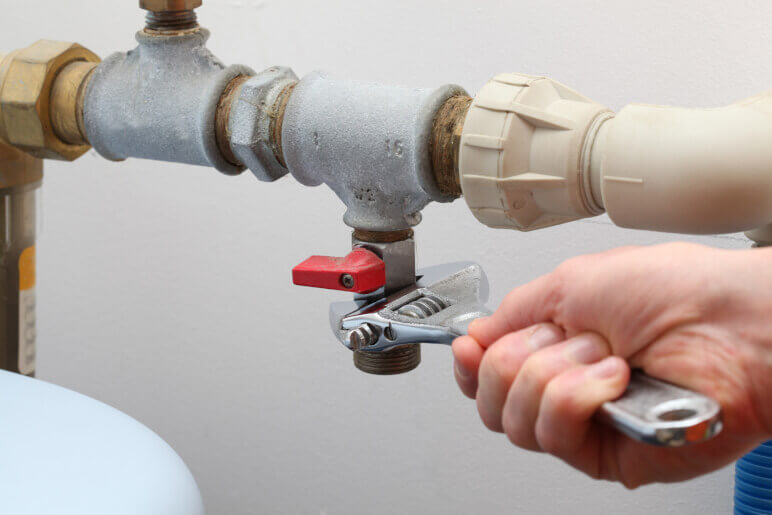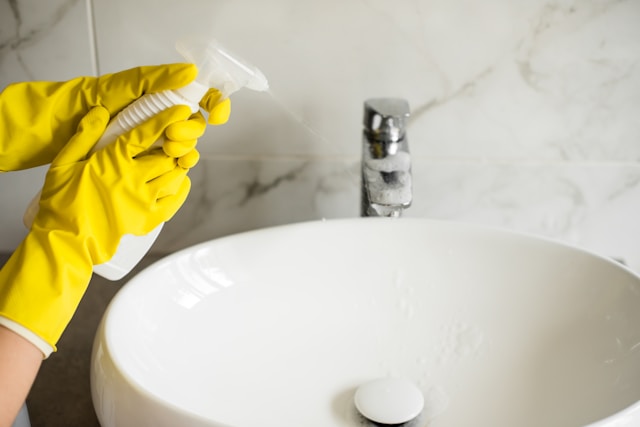Essential Bathroom Plumbing Advice for Beginners
Essential Bathroom Plumbing Advice for Beginners
Blog Article
Have you been searching for facts and techniques around 6 Essential Plumbing Checks for New Homeowners?

For brand-new property owners, understanding and keeping bathroom pipes can save both time and money by protecting against pricey issues down the line. Right here are some crucial restroom pipes pointers to assist you maintain whatever running smoothly.
Acquaint Yourself with the Main Shut-Off Valve
Knowing where the major water shut-off shutoff is located in your house is critical. This allows you to swiftly turn off the water system in case of major leaks or throughout plumbing emergency situations, stopping comprehensive water damage.
Consistently Inspect for Leaks
Little leakages can lead to huge issues. Consistently examine under sinks, around commodes, and near plumbing fixtures for any type of signs of leaks. Search for dampness, little drips, or corrosion. Catching and fixing leaks early can protect against a lot more major damage and save water.
Do Not Neglect Slow Drains Pipes
If your sink or tub is draining gradually, it's often an indication of a clog developing. Addressing this very early can prevent a full blockage. Utilize a bettor or a plumbing technician's serpent to remove particles. Prevent utilizing chemical drainpipe cleansers as they can damage your pipelines with time.
Know What Not to Flush
Bathrooms are not waste disposal unit. Avoid flushing anything other than toilet tissue and human waste. Things like wipes, feminine health items, and cotton bud should be gotten rid of in the garbage to stop obstructions and drain backups.
Set Up Strainers in Drains
Area filters in your sink and bathtub drains pipes to capture hair and other particles before they enter your pipes system. Cleaning the strainers routinely will help protect against build-up and maintain water flowing openly.
Preserve Your Water Heater
Ensure your hot water heater is set to an ideal temperature level (typically about 120 levels Fahrenheit) to prevent scalding and reduce power usage. Flush the storage tank annually to eliminate sediment buildup, which can lower the effectiveness and life-span of your heating unit.
Update Your Components
If your home has older components, take into consideration updating to much more reliable designs. Modern toilets, showerheads, and faucets are made to use much less water while offering excellent stress, which can considerably decrease your water bill and ecological footprint.
Be Cautious with Do It Yourself Pipes Repairs
While it's appealing to handle all home repairs on your own, beware with pipes. Some problems may require specialist expertise, especially if they include major water lines or drain repair services. Working with an expert can in some cases be a lot more cost-effective than do it yourself, especially if it prevents further damage.
Prepare for Winter
Secure your pipes from cold during cold weather by shielding pipelines in unheated locations like basements, attics, and garages. Throughout extreme chilly, let cold water drip from taps offered by exposed pipelines to help protect against cold.
Set Up Normal Maintenance
Take into consideration organizing yearly examinations with a qualified plumbing technician. They can spot issues that you may miss, such as hidden leaks or wear and tear on pipes and components. Regular upkeep assists extend the life of your plumbing system and can stop emergency situations.
Conclusion
Recognizing and preserving your home's restroom pipes can avoid many typical concerns. By complying with these important suggestions, you can ensure your restroom remains practical and reliable, conserving you time and money in the future.
5 Plumbing Tips for First-Time Homeowners
Know How to Shut Off the Water
In most homes, the water can be shut off at two places: at the appliance or fixture itself, and for the whole house. For instance, look under your sink or behind the toilet. See those little knobs that connect with the pipes? Those are the shut off valves for those fixtures. Simply turn them until the water is off. The main shut off valve (which controls water throughout your entire home) will be outside, where the water feeds into the structure. You might need a dedicated tool, such as a water shut-off key, to shut off the water at the main.
Build an Emergency Plumbing Kit
Everyone knows how important it is to have a high-quality plunger around the house. But there are other things that can help you out when issues arise with the pipes. Building an emergency plumbing kit to solve issues on your own is part of any list of basic plumbing tips. Consider adding these things to create a basic plumbing kit:
Adjustable wrench Tongue-and-groove pliers Screwdrivers Plumber’s tape Pipe sealant Duct tape Set of hex keys Clip light for working under cabinets Auger and hand snake Do a Little Research
Many small leaks can be handled by replacing a small part of the piping system, tightening part of a faucet, or even changing out an aerator. Take the time to browse how-to articles for common plumbing problems, such as a running toilet or slow-draining sink. You might be surprised to find how easy it can be to do simple things yourself, like replace a valve in the back of the toilet.
Keep it Simple With No Chemicals
If you have a clog, you might be tempted by the promises of liquid drain cleaner. While this might work at first, it actually causes more damage deep in the pipes, eventually creating even more problems down the road.
Instead, try using baking soda and vinegar to create a strong fizzing effect that can help break up clogs and clear gunk from drains. Follow it with boiling water to clean the pipes even more thoroughly.
Take Care of Your Garbage Disposal
Be cautious about what you put down the disposal. Avoid pouring in fats, oils, and grease, as these are a surefire way to get a clog. Beware of certain foods too, such as celery or bones, as they can lodge in the works. Always run the disposal with water flowing.
https://modernize.com/homeowner-resources/other/10-plumbing-tips-for-first-time-homeowners

Top Article Report this page